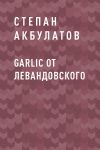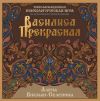Текст книги "Georgian dishes"

Автор книги: Merab Beradze
Жанр: Кулинария, Дом и Семья
Возрастные ограничения: +12
сообщить о неприемлемом содержимом
Текущая страница: 1 (всего у книги 2 страниц) [доступный отрывок для чтения: 1 страниц]
Georgian dishes
Merab Beradze
© Merab Beradze, 2016
© Lia Beridze, translation, 2016
© Yuri Mechitov, photos, 2016
Editor Amiran Melua
Created with intellectual publishing system Ridero
Little vocabulary of herbs and spices
Fresh Herbs
Basil – Rekhani
Celery – Niakhuri
Cilantro – Kindzi
Dill – Kama
Mint – Pitna
Parsley – Okhrakhushi
Summer Savory – Kondari
Dried Herbs & Spices
Cinnamon – Darichini
Cloves – Mikhaki
Coriander – Kindzi
Fenugreek – Utskho Suneli
Marigold – Imeruli Shaprani
Indian Caraway – Dira
Satsivi

Products:
1 turkey
400 g onions
1 tablespoon dry coriander
1 tablespoon utskho suneli
4—5 cloves garlic
1 hot pepper
2 tablespoon pounded saffron (“yellow flower”)
450—500 g dry walnuts
2—3 tables spoon vinegar
2 eggs
Salt, clove and cinnamon to taste
It is truly believed that no Georgian table, especially a festal one, can do without satsivi. So let satsivi introduce you to the Georgian cuisine!
Put a fat well-cleaned turkey into a big saucepan and cover it with water. Close the cover, put the saucepan on the stove and cook for 30—40 min., often removing the scum, until the turkey is ready. Put the turkey on a wooden or enamelled board and salt it from inside and outside. Put the turkey into the stove and cook until the skin turns red. Remove fat from the broth left in the saucepan. Pour half glass of the fat over fine-shredded onions and stew them on a pan until the onion turns pink. Pour broth into the mass and cook for 10—15 min.
Separately prepare the seasoning: pound dry walnuts, dilute them in half glass of vinegar, add pounded dry coriander, utskho suneli (dry spices), saffron, garlic, and pepper and mix. Pass the mass through a sieve, pour it into the broth and boil on a low fire for approx. 20 min, stirring constantly. Let the broth cool, pour in 2 yolks beat up in a spoon of vinegar and stir to prevent the yolk from curdling. Then cut the turkey into pieces, put into a deep dish and pour over the satsivi sauce and some walnut oil.
If you follow the instructions properly, you will have the essence of the Georgian table – His Majesty the Satsivi, so inviting and tasty! True, it takes time to cook satsivi, but it will really enrich your table and everybody is sure to love it!
Enjoy with “Tsinandali” wine.
Walnut Sauce (Bazha)

Products:
50 g walnuts
50 g onions
2 cloves garlic
1 sprig dill
3—4 pomegranates
1 red pepper
Mince walnuts, onions, garlic, coriander, dill, and red peppers; add salt and mix thoroughly. Boil some water, cool it, mix with pomegranate juice, and add in the minced seasoning. Pour in some walnut oil.
Chakapuli

Products:
1 kg fatty mutton / lamb meat with bones
1/2 kg onions
1 bunch estragon
Coriander and parsley, 5 sprigs each
1 teas glass fresh tkemali
2 glasses white wine
Pepper and salt to taste
Take fat mutton or lamb meat with bones, cut it into small pieces and put into a saucepan. Pour in some water to cover the meat and cook on a slow fire, then add shredded onions and stew. Add shredded parsley, coriander, estragon, cook for approx. 5 min. and put in some fresh tkemali. When the tkemali is done, pour in some white wine and season with salt and pepper.
Enjoy with “Tsinandali” wine or “Mukuzani”
Chicken Chikhirtma

Products:
1 hen, approx. 800—900 g
4 eggs
2 tablespoons vinegar
4—5 bulbs onions
3 teaspoons wheat flour
1 teaspoon dry saffron (“yellow flower”)
1/2 glass finely shredded coriander
Salt to taste
Cut up a fat chicken, put the pieces into a saucepan and stew in their own juice until the chicken meat turns pink. Add onions and finely shredded coriander and stew on a low fire, stirring carefully. Salt to taste, add approximately 10 glasses of cold water, and boil. Mix in some wheat flour and boil for 10 more minutes. Pour in 4 yolks, stir thoroughly and pour in some white vinegar. Dilute 1 teaspoon of dry saffron in 1/3 glass of hot water and leave for 2 hours, then filter. Serve chikhirtma while hot.
Georgian Solyanka (Meat with Pickles)

Products:
1 kg beef meat
0.5 kg onions
Celery, savoury, parsley, basil – 1 sprig each
4 cloves garlic
Salt and pepper to taste
Take some boneless beef meat, beat it and cut into pieces. Sprinkle the meat with salt and black pepper. Fry with shredded onions in its own fat. When the meat and onions turn slightly brown, pour in tomato sauce, vinegar or lemon juice; add minced garlic and pickles (in summer add peeled and chopped tomatoes). Solyanka is better when it has some juice and is a little stinging. Before serving, add shredded dill or parsley.
Enjoy with “Saferavi” wine.
Chanakhi

Products:
1 kg beef / mutton
1 kg aubergines
1 kg potatoes
4—5 bulbs onions
Basil, coriander, parsley (4 sprigs each)
1 green pepper
4—5 cloves garlic
Take some fat beef or mutton meat with bones, cut it into pieces, put into a cast-iron pot, add some water and put on the stove. Cut some washed aubergines and potatoes into 4—5 pieces, sprinkle with salt and leave for 1 hour. When the meat is done, add shredded onions, and stew. Then place a layer of aubergines, a layer of potatoes, garlic, and finely shredded peppers, strew with basil, parsley and coriander. Pour over some grated tomatoes, put the pot on the stove and cook.
Enjoy with “Saferavi” wine.
Chicken Chakhokhbili

Products:
1 hen / chicken
5—6 bulbs onions
100 g ordinary / clarified butter
1 kg tomatoes
Parsley, basil, coriander (1 bunch each)
1 pepper
Salt to taste
Cut the chicken into pieces, put them into a saucepan and stew. Add shredded onions, ordinary or clarified butter. When the chicken turns slightly brown, add minced tomatoes, and cook for 20—25 min. Add in finely shredded parsley, basil, coriander, peppers and salt.
Enjoy with “Tsinandali” wine.
Imeretian Chicken

Products:
1 chicken
2—3 bulbs onions
1 tablespoon dry suneli
3 sprigs coriander
1 glass walnuts
0.5 glass vinegar
3 cloves garlic
1 pepper
Salt to taste
Take a fat chicken, clean it thorougly, and cut into pieces. Put the pieces into a saucepan and stew. Add finely shredded onions and cook until browned.
Prepare the seasoning: pound some walnuts, dry suneli, garlic and peppers, salt them, mix together, and pour in some vinegar. Cover the chicken with water, pour in the seasoning. Put the saucepan back on the stove and boil up. Serve while hot.
Enjoy with “Tsinandali”, “Rqaciteli” or “Kakhuri” wine.
Fried Chicken with Tkemali Sauce

Wash a chicken, rub with salt and put on a spit. To keep the shape of the chicken, tie the neck and legs to the spit with a wire. Put the spit on fire and turn it round slowly until fried. Untie the chicken, take it off the spit, put on a big plate and serve with tkemali sauce.
Enjoy with “Kakhuri”, “Saferavi” or “Rqaciteli” wine.
Chicken Tabaka

Take a chicken, cut down the breast, and rub with salt. Put some clarified butter, vegetable or olive oil on a frying pan and heat up. Put the chicken on the pan, flatten it, put a plate over the chicken and put something heavy on the plate to press it down. Serve the chicken tabaka with tkemali or tomato sauce.
Enjoy with “Tsinandali” wine.
Boiled Chicken with Garlic

Boil a chicken, cut it into medium pieces, and put into deep plates. Pound some garlic; pour in the broth, and salt. Pour the broth with garlic over the chicken pieces.
Shkmeruli

Solve pounded garlic in warm water and let it boil with some butter for 3—5 min. Dissect a cleaned chicken along the breast, sprinkle it with a pinch of salt and some red ground pepper and roast flat. Then pour the garlic solution on it and cook for 20—25 min. Serve hot.
Enjoy with “Tsinandali” wine.
Kuchmatchi (Pork Guts)

Products:
1 kg pork guts
2—3 bulbs onions
2 glasses walnuts
5—6 sprigs savoury
2 cloves garlic
1 pomegranate
Pepper, saffron (“yellow flower”), coriander, suneli to taste
Wash and clean the guts, pour over some water and boil. Leave the guts to cool, take them out of the broth and cut into small pieces. Add finely shredded onions and savoury. Pound walnuts, pepper, saffron, coriander, suneli, garlic, salt the mass and pour in some broth. Add vinegar to taste and season the guts. If the kuchmatchi has little juice, add in some more broth. Before serving, strew with some pomegranate grains.
Enjoy with “Kakhuri” or “Tsinandali” wine.
Kaurma of Liver

Products:
1 kg mutton / pork liver
5—6 bulbs onions
100 g butter
6—7 tomatoes or 0.5 litre tomato juice
Salt and pepper to taste
Cut mutton or pork liver into pieces, sprinkle with salt and black pepper, mix thoroughly and fry in butter until slightly browned. Put the liver into a saucepan, strew with shredded onions, and steam for 5 min. Add 1 glass of meat broth and boil for 10—15 min. Add in peeled, seeded and minced tomatoes, coriander, dill, parsley, estragon, salt, some juice of boiled onions, and cook. Before serving strew with shredded dill or parsley.
Enjoy with “Kakhuri” or “Saferavi” wine.
Khashlama

Boil fat young beef, frequently removing the scum. Add laurel leaves, grains of black pepper, some cloves of garlic, and salt. Before serving, strew with shredded parsley.
Enjoy with “Kakhuri” or “Tsinandali” wine.
Dolma (stuffed rolls) in Vine-Leaves

Products:
1 kg beef / mutton
3—5 bulbs onions
0.250 litre yoghurt (matsoni) or 200—300 g sour cream
Coriander, mint, dill, parsley (1 sprig each)
Salt and pepper to taste
Take some beef or mutton meat and mince twice together with onions. Add pepper, salt, an egg, coriander, mint, dill, parsley, and mix it thoroughly. Scald vine-leaves in boiling water, leave to cool and let the water out. Make small rolls of the minced meat and wrap them in the vine-leaves. Put the stuffed rolls into a saucepan and cook. Serve while hot. Dolma is better served with yoghurt or sour cream that can be poured over the dolma.
Enjoy with “Kakhuri” or “Tsinandali” wine.
Fried Trout with Pomegranate Juice

Products:
1 kg trout
100 g butter
2 eggs
1 lemon
1 glass of pomegranate juice
1 sprig of coriander
Salt to taste
Take some red-spotted trout, draw and clean the fish and wash it in cold water. Sprinkle the fish with salt. Stuff the trout with eggs, butter, thin slices of peeled lemon, and fresh estragon. Rub it with sour cream and fry together with fat. When the trout turns brown, strew it with leaves of parsley and pour over some pomegranate juice with shredded coriander and salt.
Enjoy with “Kakhuri” or “Tsinandali” wine.
Mtsvadi (Barbeque)

Mtsvadi (shashlik or barbeque) can be made either of mutton or beef. Actually, there is no difference in recipes. The main thing is to choose boneless meat or meat with few bones.
Cut the meat into small pieces, and roast it either on a spit, if available, or on a frying pan. The mtsvadi must be roasted so that the meat is still a little raw. Serve the mtsvadi strewed with lots of sliced onions, pomegranate grains and barberries.
Enjoy with “Kakhuri” or “Tsinandali” wine.
Kupati (Stuffed Guts)

Products:
1 kg pork meat
10 g black pepper
10g ground laurel leaves
3 cloves garlic
1 bulb onions
Dry coriander to taste
2 spoons of pomegranate grains or barberries
Take fat pork, cut into small pieces and shred. Strew with finely shredded onions, garlic, and dry celery; add black pepper and salt and mix thoroughly. Stuff mutton guts with the meat mixture and tie up the ends. It is better to refrigerate the stuffed guts for several days. Then take them out and roast.
Enjoy with “Kakhuri” or “Tsinandali” wine.
Abkhazura

Mince 0.5kg of fat pork together with garlic, onions, barberries, utskho suneli, savoury, black pepper, cinnamon, celery, pomegranate grains, and dry coriander to taste. Add some water.
Cut pork belly into square pieces, wrap the prepared stuffing in the pieces, and cook in the oven.
Enjoy with “Kakhuri” or “Rqaciteli” wine.
Abkhazian Mtsvadi

Cut fat mutton, liver, and fat tail into pieces, put on a spit, sprinkle with salt, and roast. Serve the mtsvadi strewed with sliced onions, shredded parsley, pomegranate grains and barberries.
Enjoy with “Saferavi” or “Rqaciteli” wine.
Khashi

Products:
2 kg beef guts and knuckles
15—20 cloves garlic
Salt to taste
Cut well-cleaned beef paunch, pork hooves and knuckles into pieces. Put them into a saucepan, pour water and boil for approx. 4—5 hours. Pour off the juice, add fresh water and boil again until the juice becomes thick and the meat is soft. Prepare the seasoning: pound garlic with salt. The seasoning is put into the khashi after serving. It is better to add a little milk into the khashi, giving the dish a white colour, and serve while hot. Khashi is usually served early in the morning. It is especially tasty the day after a feast, relieving your headache and hangover.
Better served with vodka and mineral water.
Kebab

Products:
1 kg mutton (meat)
100—120 g fat tail
2 bulbs onions
2 eggs
1 wineglass barberries
Salt and pepper to taste
Prepare some lavash (thin-sheeted Georgian bread) beforehand. Mince the mutton meat together with fat tail and onions. Add salt, pepper, barberries, beaten up eggs, and mix thoroughly. Shape the mass into a sausage, put on a spit and roast. Divide the roasted meat into pieces and roll each piece into a lavash. Strew the kebab with lots of shredded onions and pounded barberries. Serve while hot.
Enjoy with “Saferavi” or “Tsinandali” wine.
Roasted Pig

Take a well-cleaned young pig and sub with salt from inside and outside. Prepare the seasoning: – either mix red pepper, dry coriander, dry savoury, garlic and yellow flower and add 2—3 spoons of walnut oil, or use homemade red adjika (see the recipe below). Rub the mixture onto the pork from inside and outside and put the pig into the stove. When the skin roasts and turns red, take the pig out and leave it to cool. Before serving, put a radish and a sprig of parsley into the pig’s mouth. The pig can be also served in pieces, strewed with shredded greens. The roasted pig as well as roasted meat in general is better served with tkemali or tomato sauce.
Enjoy with “Kakhuri” or “Rqaciteli” wine.
Khinkali

Products:
1 kg paste
1 kg pork / mutton meat
5—6 onions
1 egg
Greens and pepper to taste
Khinkali is very popular in Georgia and you would rarely meet someone who does not like khinkali. If you want to cook khinkali, you can do it easily.
It is better to use grey flour for the khinkali dough, though white flour also gives good results. Sieve the flour, pour in some warm water, add salt and mix until you dense. Roll out well-mixed paste to a thin layer and cut out round pieces of big cup diameter. On each piece of dough put a spoon of prepared stuffing – fat pork or mutton minced with greens, pepper and onions. Collect the edges of the dough to a bunch, and seal. Put the khinkali into a saucepan with salted boiling water (2 tablespoons of salt). Stir carefully from time to time preventing the khinkali from sticking to the bottom. When all the khinkali are afloat, wait for 5 min., take them out with a skimmer and put on a big dish. Khinkali is served while hot, better with pepper, beer, and vodka.
Adjarian Iakhni (Boiled Meat with Walnuts and Onions)

Products:
1.5—2 kg fat beef
0.5 kg onions
1 glass pounded walnuts
3 teaspoons saffron
3 teaspoons dry coriander
2—3 cloves garlic
Salt and black pepper to taste
Cut very fat beef into pieces and boil, frequently removing the scum. When the water evaporates, add in shredded onions, pounded walnuts mixed with saffron, black pepper, dry coriander, and salt. Then put in pounded or minced garlic. Serve Iakhni while hot.
Enjoy with “Saferavi” or “Tsinandali” wine.
Khachapuri

Products:
1 kg flour
600 g soft cheese
2 eggs
Salt to taste
Take some young soft cheese, smash it with hands, mix in an egg, and add salt. Roll out thoroughly mixed dough on a wooden board to a thin layer. Remember: the thinner the layer, the tastier the khachapuri. Cut out round pieces of the dough and put on the stuffing of cheese, yolk, salt and sugar. Then cover up the khachapuri with dough so that cheese is seen in the middle, put the khachapuri on a pan, and bake. At due temperature, the khachapuri will be ready in max. 10—15 min, when the surface is well roasted. Before serving, butter or egg the surface or put on some cheese, and put the khachapuri into the oven for a short time.
Adjarian Khachapuri

Products:
100—150g flour
50 g milk / water
60—70 g cheese
25—30 g curds
1—2 teaspoon butter
Take some Adjarian cheese, smash it, mix in one or two eggs (some cooks also add curds, but tastes differ). Take 200—250g of yeast dough, roll it out to a 3cm-thick layer. Shape the piece into a so-called “boat”, and put the cheese-and-egg mix into the middle, slightly covering its with dough at the edges. Egg the surface with yolk and bake in the oven until slightly browned. Then break an egg on the khachapuri and put into the stove for 2—3 min. Before serving, put on 1—2 teaspoons of butter. Serve while hot.
Achma

Products:
7 eggs
1 glass cold water
Flour as necessary
400 g butter
800 g cheese
Mix together wheat flour and 7 eggs, add 1 glass of water and salt to taste. Mix thoroughly to a dense paste. Divide the dough into seven pieces, and roll them out to the size of the baking sheet. Put the first layer on the baking sheet, and butter. Put other layers into boiling salted water, and cook. Then take the dough out and put to drip. Put two cooked layers over the first raw one, buttering each. Spread over grated cheese, and put on the fourth, fifth and sixth layers. Cover the sixth layer with cheese, put on the seventh layer, and egg the surface with a beaten-up egg. Put the baking sheet into the oven for approx. 30 min. When ready, the achma should have the colour of transparent candle wax. Cut the achma into pieces and serve while hot.
Ossetian Khachapuri (Khabidzgina)

Products:
700—800 g wheat flour
40—500 g Ossetian cheese
300 g clarified butter
Salt to taste
The recipe for the Ossetian Khachapuri is similar to the Georgian Khachapuri, but for Ossetian Khachapuri only Ossetian cheese should be used. Mix the dough and leave it for an hour to rise. Then roll the dough out to a layer, put over the Ossetian cheese, cover the cheese with dough and seal the edges. Put some clarified butter on a frying pan, put the Khachapuri and bake until browned.
Chvishtari

Chvishtari is a kind of khachapuri prepared with corn flour. Take some clean and sieved corn flour, mix it with milk-and-yoghurt mixture, add 1—2 eggs. Divide the dough in two parts, and roll out each. Put one piece on a preheated clay pan, if available, or on a baking tray. Spread over 5 teaspoons of smashed Imeretian cheese. Put the second piece of the dough over and press with hands. Beat up and egg, add some grated cheese and pour the mixture over the chvishtari. Cover the tray with a tin sheet, put over some coals, and cook until browned.
Preserved Aubergines

5 kg aubergines
2 kg onions
200 g garlic
1 litre oil
5—6 red peppers
4 teaspoons pounded coriander seeds
4 teaspoons dry saffron (“yellow flower”)
1 glass vinegar
Slice the aubergines, sprinkle with salt and leave for approx. 2 hours. Fry some onions; add in finely shredded garlic and peppers. Pour in 1 glass of vinegar and add spices. Strew the mass on the aubergines. Put the aubergines into jars and sterilize. Close the jars with tight lids and keep in a cool place.
Adjapsandali

Products:
1 kg aubergines
0.5 kg tomatoes
0.5 kg potatoes
2—3 bulbs onions
4 tablespoons olive oil
Basil, parsley, coriander – 3—5 sprigs each
2 cloves garlic
Green peppers and salt to taste
Slice aubergines, salt them and leave for 3—4 hours, then squeeze. Fry finely shredded onions in butter. Put in the aubergines and stew. Add slices tomatoes and potatoes, shredded peppers, basil, savoury, coriander, parsley, and garlic. Cook until the potatoes are ready.
Enjoy with “Kakhuri” or “Saferavi” wine.
Fried Aubergines with Garlic

Products:
0.5 kg aubergines
1/3 glasses oil
3—4 bulbs onions
Vinegar, garlic, salt to taste
Cut aubergines lengthwise, sprinkle with salt and leave for 1 hour, then squeeze, avoiding crashing them. Heat up some oil in a frying pan, put the aubergines in the oil, and fry from both sides. Strew finely shredded onions and add vinegar with pounded garlic.
Enjoy with “Saferavi” or “Tsinandali” wine.
Внимание! Это не конец книги.
Если начало книги вам понравилось, то полную версию можно приобрести у нашего партнёра - распространителя легального контента. Поддержите автора!Правообладателям!
Данное произведение размещено по согласованию с ООО "ЛитРес" (20% исходного текста). Если размещение книги нарушает чьи-либо права, то сообщите об этом.Читателям!
Оплатили, но не знаете что делать дальше?








































